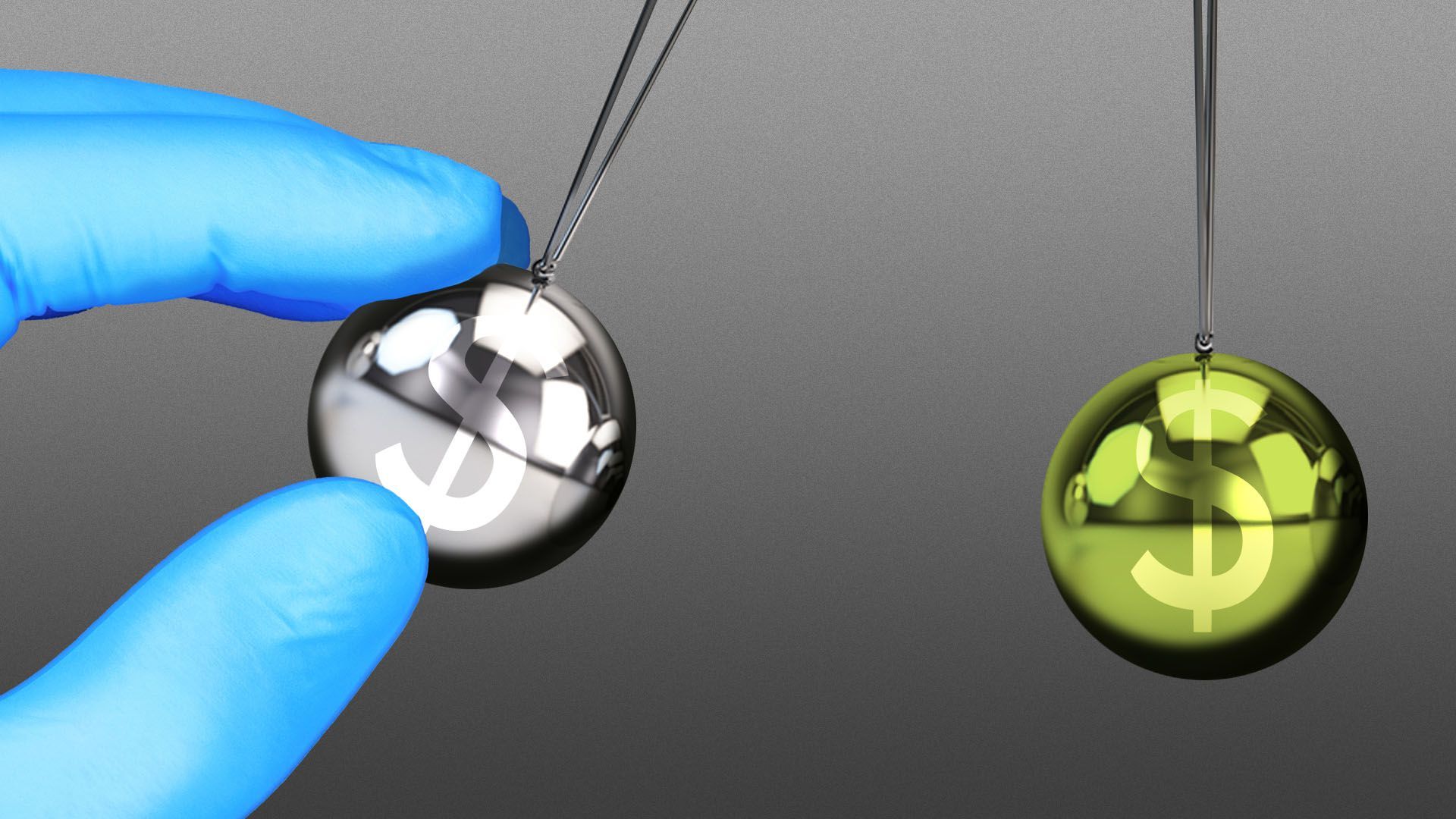
Illustration: Sarah Grillo/Axios
Economists are warning that the economic downturn caused by the coronavirus pandemic is now creating another recession: mass job losses, business failures and declines in spending even in industries not directly impacted by the virus.
Why it matters: The looming recession — a possible recession within a recession — is less severe than the coronavirus-driven downturn. But it's more likely to permanently push millions out of the labor force, lower wages and leave long-lasting scars on the economy.
What we're hearing: "As the recovery has slowed down we’ve seen a couple of metrics transform from something that was extraordinary and unique and that we’d only seen in this COVID recession to something that is much more in line with our historic experience with typical recessions," Ernie Tedeschi, a managing director and policy economist for Evercore ISI, tells Axios.
The warning signs he sees:
- The increasing number of layoffs that have gone from classified as temporary to classified as permanent.
- The increasing number of men who have lost jobs in recent months, a traditional recession dynamic and reversal of the trend that saw more women being laid off in early months.
- The rising rate of long-term unemployment, an unfortunate hallmark of the 2008 Great Recession.
"The longer this weakness persists the harder it is to recover later on," Tedeschi adds.
- Darius Dale, managing director at Hedgeye Risk Management, tells Axios: "Our view is that the U.S. economy is transitioning from a depression to a recession and not a recovery."
But, but, but: It will be hard to see the recession in most data, because third quarter economic growth will be compared to the second quarter, which was the worst downturn in history.
- Absent another wave of lockdowns, Q3 GDP growth should be the highest ever — but largely because of pent-up demand and the simple fact that most U.S. business are allowed to operate.
Be smart: The new recession is exactly what policymakers were trying to avoid by passing the $2 trillion CARES Act in March.
- Congress has allowed enhanced benefits for the 27 million Americans receiving unemployment to lapse, and leading members of the Federal Reserve, conservative and liberal think tanks and economists of all stripes have been pounding the table, calling on legislators to pass more fiscal stimulus.
- Former Fed chair Janet Yellen wrote in in the New York Times: "The Senate is on vacation while Americans starve."
How it happened: "We had an uneven shutdown around the country and what that allowed the virus to do is really take hold and remain a force for economic outcomes," Constance Hunter, chief economist at consulting firm KPMG, tells Axios.
- Hunter also serves as president of the historically right-leaning National Association for Business Economics, which recently released a poll of its members that found two-thirds believe the economy is still in a recession.
- More than a third (37%) see a one-in-two chance of a double-dip recession — an occurrence that Hunter notes is "extremely rare."
The bottom line: The recession within a recession is giving economists flashbacks of 2008 and the long recovery needed to get many of the country's lower-income citizens back on their feet.
- The difference this time is that it follows an economic shock that caused at least three times the number of job losses as 2008, and has put four times as many people on government unemployment insurance

No comments:
Post a Comment